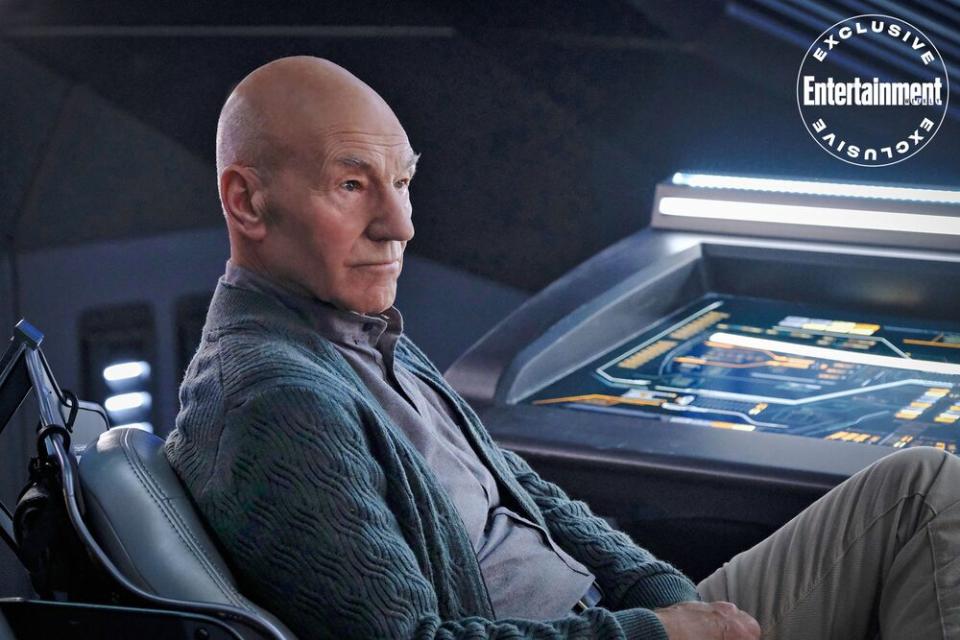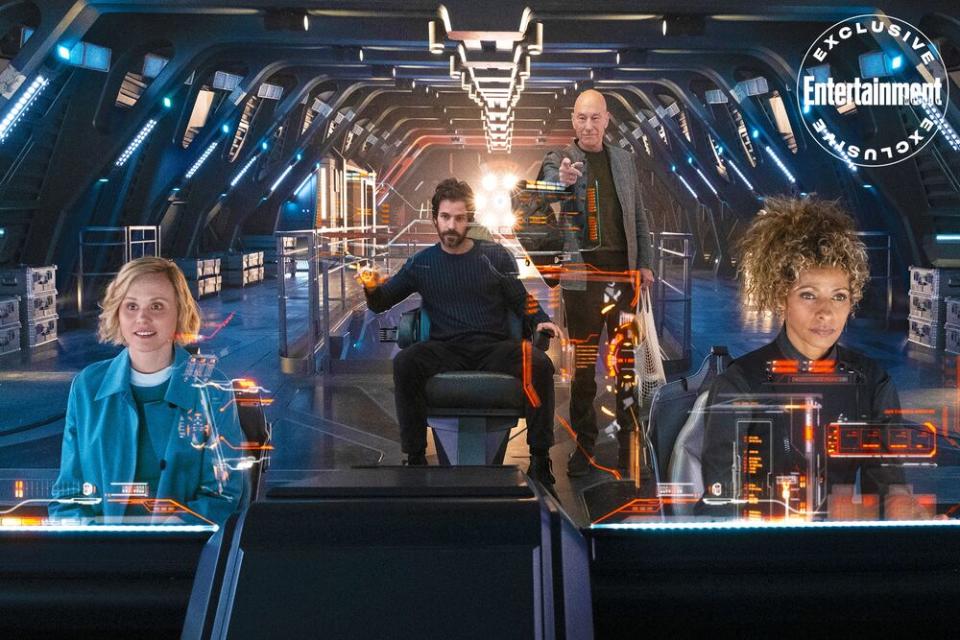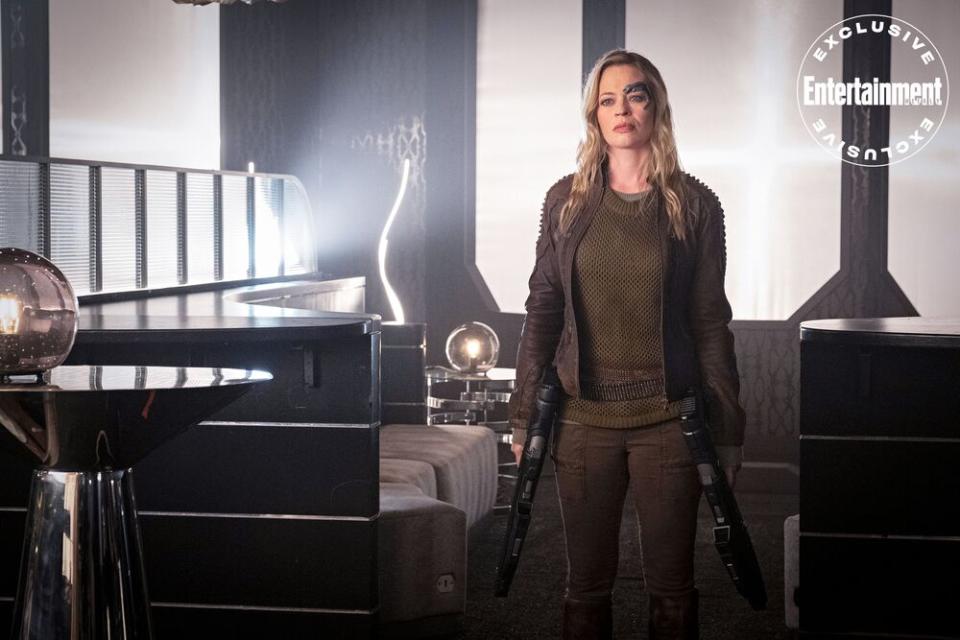Patrick Stewart on how Star Trek: Picard strives to avoid fan service

“This is no longer your house, Jean-Luc!” roars a Starfleet admiral early in the first season of the new Star Trek series.
The typically unflappable former USS Enterprise captain, famously portrayed by Patrick Stewart, looks stunned by this dressing-down, which includes the first f-bomb ever uttered around the beloved character. It’s a shocking moment not just for the language, or even because a Starfleet leader is berating such a revered character, but because their debate — which concerns Starfleet’s role in the tragic destruction of the planet Romulus — nudges the viewer toward an unsettling thought: Picard, the absolute moral authority during seven seasons of Star Trek: The Next Generation, might actually be wrong. These gray edges perhaps best distinguish this show from its predecessor — and lured Stewart to return to an iconic role he was convinced he had left behind.

“Patrick was very clear early on that he did not want to present a black-and-white world, but one where Starfleet was forced to make a very complicated decision,” executive producer Alex Kurtzman says. “There’s definitely going to be disagreements and difficult decisions. This really is the first truly adult drama in the world of Star Trek. We took all the classic tropes and challenged them.”
Star Trek: Picard picks up with the retired admiral at his vineyard in France, haunted by events surrounding the botched evacuation of Romulus years earlier (an event depicted in J.J. Abrams’ 2009 Star Trek film, which Kurtzman co-wrote). A mysterious young woman, Dahj (Isa Briones), arrives begging for help. Her plea leads Picard to hire a ship and crew for a mysterious renegade journey that forces him to reexamine his past — including time as a prisoner of the sinister Borg Collective.
Stewart says he first met with Kurtzman and fellow executive producer Akiva Goldsman to politely decline their offer to reprise his character. “I just didn’t want to do it,” Stewart says. “I’m very proud of the work we did on Next Generation — most of our work — but I felt I had said and done everything I could about Jean-Luc Picard and didn’t see any point.” Yet the 79-year-old actor was just intrigued enough to request four pages of additional information. Kurtzman and Goldsman sent him 34. “That’s when he understood we were dedicated to exploring a new chapter in a way that hadn’t been done before,” Kurtzman says.
Stewart made it clear that he wanted to take a cue from Logan, the R-rated 2017 X-Men film that took his Professor X and Hugh Jackman’s Wolverine into a very different, more mature direction. “And I wanted it to reflect how our world has changed,” Stewart adds. “Star Trek always references the present day to tell stories about the future.”

One sticking point was over including the Borg, which Stewart initially rejected. “I didn’t want to be dipping back into the past to make this work,” Stewart explained. The producers eventually won him over there too, with a story line that kicks off where scientists are rehabilitating former Borg captives. “We presented an opportunity to tell a very different kind of Borg story, one you could not have told before,” Kurtzman says.
Another discussion involved reenlisting TNG crew members, which likewise concerned Stewart. While the actor loved reuniting with old friends, he didn’t want to fill the series with fan service. “A rule emerged that any legacy characters are only going to show up because the story cannot be told without them,” Kurtzman says.
The first season includes: Data (Brent Spiner), still dead from his Star Trek: Nemesis heroics as the story opens; former commanders Will Riker (Jonathan Frakes, who also directed two episodes) and Deanna Troi (Marina Sirtis), now cohabitating on a remote planet; and Voyager fan-favorite Seven of Nine (Jeri Ryan), the Borg drone–turned–Starfleet officer, who is far more human-acting (the reason makes sense, Ryan assures) yet is now part of a vigilante group. “She’s so different and has been through so much; she’s in a very dark place when we meet her,” Ryan teases.

And then there are Stewart’s new costars, among them a disillusioned Starfleet officer–turned–freelance pilot (Santiago Cabrera), another ex–Starfleet officer struggling with substance abuse (Michelle Hurd), and that young woman played by newcomer Briones, who had the out-of-this-world experience of going from performing in musical theater to taking center stage on this major TV series. “My first scene was right in the thick of it: ‘Okay, you’re screaming at Patrick Stewart—go!’” she recalls.
Yet for all the changes, some things remain. The world is identifiably Star Trek, with transporters and warp speed and Romulans. Picard’s moral compass still points in the right direction, even if he’s not infallible. And there’s that moment he enters the bridge. Picard glances at the captain’s chair, but doesn’t take it. Yet he can’t help but give a one-word order with a familiar wave of his hand, gesturing toward the great unknown: “Engage.”
To read more from the Winter TV Preview, pick up the new issue of Entertainment Weekly beginning Friday, or buy it here now. Don’t forget to subscribe for more exclusive interviews and photos, only in EW.
Related content:

